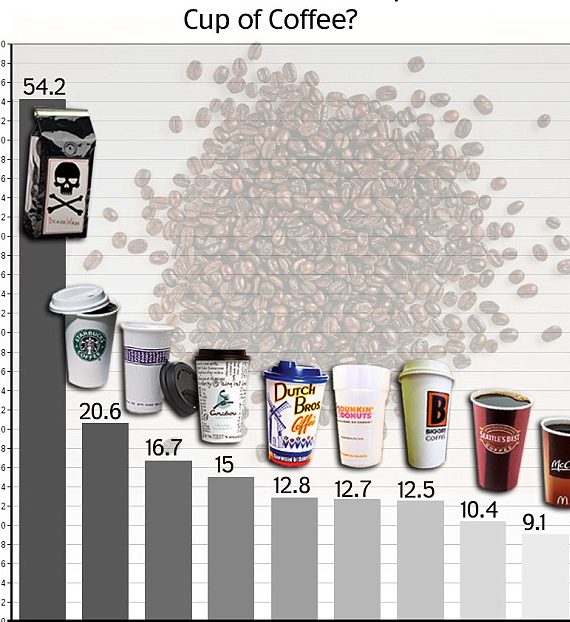Caffeine is a natural stimulant commonly found in various beverages. It is widely consumed for its energizing effects, which can enhance alertness and concentration. However, excessive caffeine intake can lead to health issues. Understanding where caffeine is found and how much is safe to consume can help you make informed choices about your beverage intake. Here’s a comprehensive guide to caffeine in beverages and recommendations for safe consumption.
Common Sources of Caffeine
Coffee
Coffee is perhaps the most well-known source of caffeine. The amount of caffeine in coffee can vary depending on the type and preparation method:
- Brewed Coffee: A typical 8-ounce cup of brewed coffee contains approximately 95 milligrams of caffeine. Espresso, which is a concentrated form of coffee, has about 63 milligrams of caffeine per ounce.
- Decaf Coffee: Decaffeinated coffee contains a significantly reduced amount of caffeine, usually around 2 to 5 milligrams per 8-ounce cup, though this can vary.
Tea
Tea also contains caffeine, though generally in smaller amounts compared to coffee:
- Black Tea: An 8-ounce cup of black tea contains about 40 to 70 milligrams of caffeine.
- Green Tea: Typically contains 20 to 45 milligrams of caffeine per 8-ounce cup.
- Herbal Tea: Most herbal teas are caffeine-free, though some blends may contain caffeine if they include tea leaves or other stimulants.
Soft Drinks
Many carbonated soft drinks contain caffeine, though the amounts can vary widely:
- Cola: An 12-ounce can of cola contains about 30 to 40 milligrams of caffeine.
- Diet Soda: Generally has a similar caffeine content to regular cola.
Energy Drinks
Energy drinks are known for their high caffeine content, often combined with other stimulants and sugar:
- Energy Drinks: A typical 16-ounce can of energy drink can contain anywhere from 80 to 200 milligrams of caffeine, depending on the brand and formulation.
Other Sources
Caffeine can also be found in less obvious places:
- Chocolate: Cocoa and chocolate products contain small amounts of caffeine. An ounce of dark chocolate has approximately 12 milligrams of caffeine.
- Medications: Some over-the-counter medications, especially those for headaches or weight loss, may contain caffeine.
Recommended Caffeine Intake
General Guidelines
The recommended amount of caffeine can vary based on individual health conditions, age, and sensitivity. However, general guidelines suggest:
- Moderate Consumption: For most healthy adults, up to 400 milligrams of caffeine per day is considered safe. This equates to about four 8-ounce cups of brewed coffee.
- Pregnant Women: Pregnant women are advised to limit caffeine intake to about 200 milligrams per day, which is roughly equivalent to one 12-ounce cup of coffee.
- Children and Adolescents: Caffeine consumption should be limited in children and adolescents. The American Academy of Pediatrics recommends that adolescents aged 12 to 18 should consume no more than 100 milligrams of caffeine per day.
Individual Sensitivity
Caffeine sensitivity varies from person to person. Factors influencing sensitivity include:
- Genetics: Genetic variations can affect how quickly caffeine is metabolized.
- Health Conditions: Individuals with certain health conditions, such as anxiety disorders or heart problems, may need to limit their caffeine intake.
- Medication Interactions: Some medications can interact with caffeine, affecting its metabolism and effects.
Effects of Excessive Caffeine Consumption
Short-Term Effects
Excessive caffeine intake can lead to several short-term effects:
- Insomnia: Difficulty falling or staying asleep, especially if caffeine is consumed later in the day.
- Nervousness: Increased feelings of anxiety or restlessness.
- Increased Heart Rate: Rapid heartbeat or palpitations.
Long-Term Effects
Long-term overconsumption of caffeine can have more serious health implications:
- Digestive Issues: Caffeine can cause stomach upset, acid reflux, or diarrhea in some individuals.
- Bone Health: High caffeine intake may affect calcium absorption and bone health, particularly if dietary calcium is insufficient.
- Dependency: Regular high intake can lead to dependence and withdrawal symptoms, such as headaches and fatigue, when caffeine consumption is reduced.
Managing Caffeine Intake
Monitoring Consumption
To manage caffeine intake effectively:
- Read Labels: Check the caffeine content on beverage labels and be mindful of the cumulative intake from all sources.
- Track Intake: Keep a daily record of caffeine consumption to ensure it stays within recommended limits.
Alternatives and Reductions
If you’re looking to reduce caffeine intake:
- Switch to Decaf: Opt for decaffeinated coffee or tea to enjoy the flavors without the caffeine.
- Try Herbal Teas: Choose herbal teas that are naturally caffeine-free.
- Gradual Reduction: If reducing caffeine, do so gradually to minimize withdrawal symptoms.
Consulting Healthcare Providers
If you have specific health concerns or conditions affected by caffeine, consulting a healthcare provider can help tailor advice to your individual needs.
Conclusion
Caffeine is present in many common beverages, including coffee, tea, soft drinks, and energy drinks. While moderate caffeine consumption is generally safe for most adults, excessive intake can lead to various health issues. By understanding where caffeine is found, how much is safe to consume, and how to manage intake, you can enjoy your favorite caffeinated beverages while maintaining your health and well-being.

